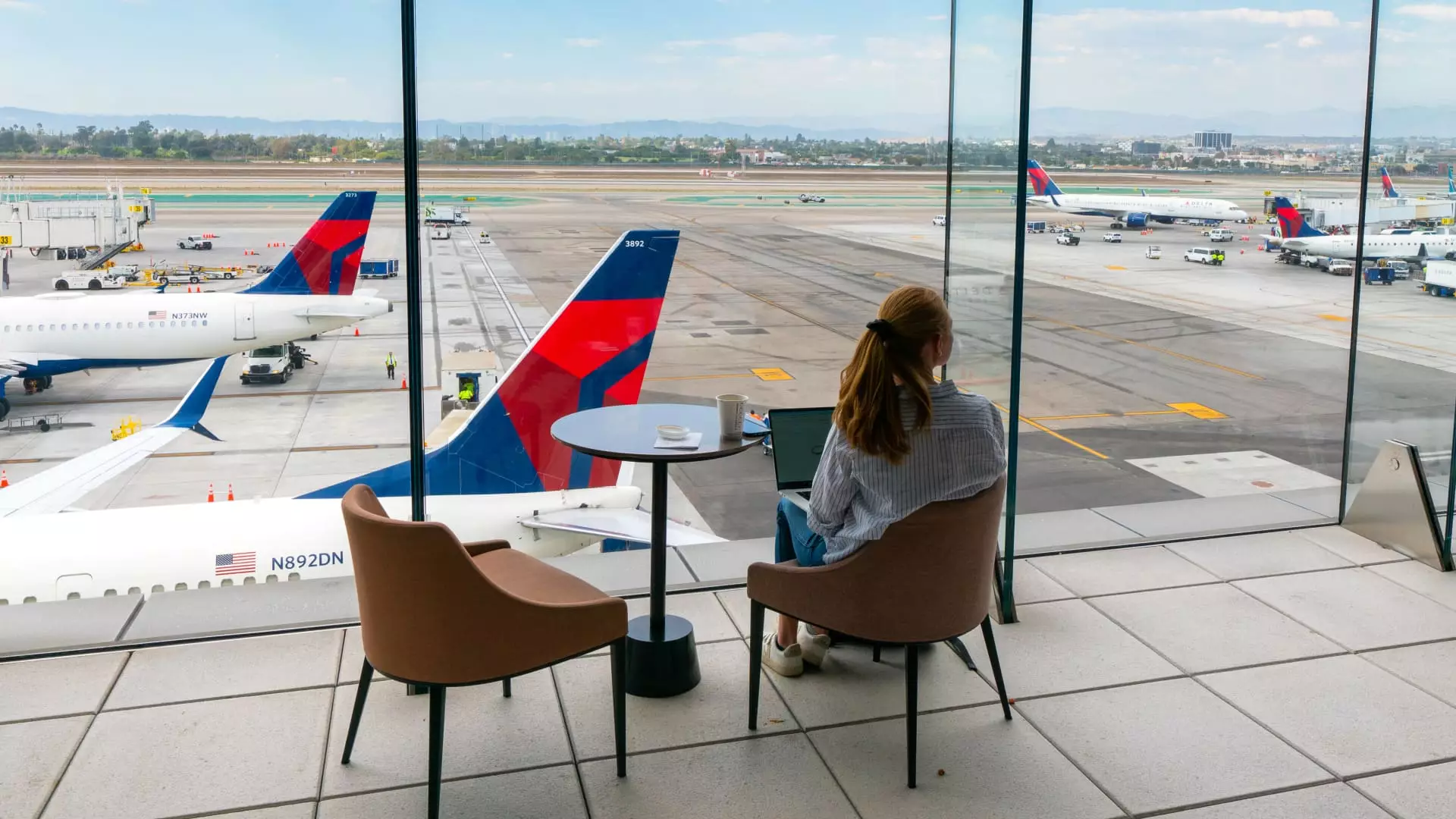Airlines have long been considered barometers of economic health, and recent statements from leaders in the industry indicate that turbulent times lie ahead. Giants such as Delta Air Lines and Frontier Airlines have retracted their optimistic forecasts for 2025, attributing their outlook to uncertainty in the U.S. economy and faltering demand. As passenger traffic becomes increasingly volatile, the implications for budget-conscious and luxury travel alike are profound. According to Delta CEO Ed Bastian, the industry is adopting a defensive posture, mirroring broader economic anxieties. The sentiment is far removed from earlier forecasts that predicted a prosperous trajectory for the airline sector.
Booking trends, particularly for corporate travel, have already shifted. Factors such as global trade tensions and international travel restrictions have exacerbated weaker demand. With consumer sentiment waning—as evidenced by troubling statistics from sources like the University of Michigan—airlines must navigate a more complex crosswind. Bank of America even reported a decline in discretionary spending on services like dining and travel, suggesting that travelers are tightening their belts in response to the uncertain economic climate.
Rethinking Growth Strategies Amidst Uncertainty
In light of these challenges, airlines are recalibrating growth strategies with a heightened focus on affluent leisure travelers. This demographic has become vital for sustaining record revenues, especially post-pandemic. Airlines are banking on this segment’s willingness to splurge on premium offerings, aiming to entice consumers with plush seating and exclusive amenities. For instance, budget carrier Spirit Airlines recently leveraged a well-known quote from pop culture to highlight its premium seating options—the “Big Front Seat”—designed to appeal to those prioritizing comfort over cost.
While this pivot toward the high-end traveler is strategically sound in the current climate, it also shifts the risk profile. Airlines are investing heavily in refurbishing aircraft with premium cabins and lounges, a move that can be financially taxing if the demand does not materialize as hoped. As Delta and Frontier pull back on growth initiatives—particularly in off-peak domestic markets—the focus is now on maintaining profitability without sacrificing quality.
Exploring Premium Revenue Streams
Delta’s leadership has expressed optimism about premium segments, such as international first-class and business class travel. The revenue growth from these sections has consistently outpaced that of main cabins, a trend that is expected to continue. Glen Hauenstein, Delta’s president, indicated that premium offerings are likely to expand as the airline fine-tunes its strategic approach—further affirming the notion that wealthier travelers might be less affected by economic downturns.
In contrast, the decrease in corporate travel and the softness in domestic booking signals a stark change for airlines. The balance of power is tipping toward those willing to invest in more luxurious travel experiences, presenting an opportunity for airlines to solidify their positions as leaders in the premium segment. However, this approach requires agility and foresight as they navigate an unpredictable economic landscape.
International Travel: Challenges on the Horizon
Despite a focus on premium revenue, international travel is not without its challenges. Declining demand for flights between the U.S. and Canada has raised alarms, particularly for airlines like Delta and United. New data indicates that non-U.S. citizen arrivals fell sharply, with a marked decrease of nearly 13% from pre-pandemic figures. This trend presents a dual challenge: it not only reflects changing travel habits but threatens to exacerbate the U.S. international travel deficit.
In the face of this turmoil, airlines are beginning to roll out fare sales to stimulate demand. Some analysts suggest that this could result in more affordable options for travelers eager to explore international destinations, particularly Europe. As noted by Scott Keyes, founder of the travel deal website Going, this summer presents a more favorable landscape for European travel than the previous three years combined. This raises questions about how airlines will balance revenue generation against the need for price competitiveness.
The Path Ahead for Airlines
As airlines grapple with evolving consumer preferences, a lingering question remains: Can they adapt quickly enough to capitalize on premium travel segments while also addressing the shifting dynamics of domestic and international travel? The focus on affluence amid economic uncertainties signifies a redefined landscape where comfort and convenience reign supreme.
Airlines are at a critical juncture, forced to examine customer sentiment closely while also factoring in the impending economic climate. The road ahead may be unpredictable, but for now, those who dare to invest in elevating the travel experience for a more discerning customer could ride out the storm, potentially emerging stronger in the aftermath. The industry’s agility in responding to these changes will ultimately dictate its resilience and future success in a turbulent economic environment.


Leave a Reply